News
-
 Environment
EnvironmentA glacier burst, flooding Juneau. Again. This one broke records
A warming climate is behind growing floods of glacier meltwater in Alaska’s capital. Scientists say it’s the new normal.
By Douglas Fox -
 Anthropology
AnthropologyA 104-centimeter-long hair could rewrite recordkeeping in Inca society
Analysis of the hair used in a knotted device reveals the owner’s simple diet. That suggests commoners, not just the elite, kept records in Inca society.
-
 Physics
PhysicsSunlight is all that’s needed to keep these tiny aircraft aloft
Sun-powered fliers could use photophoretic forces to hover in the mesosphere, gathering data from a region off limits to planes and balloons.
-
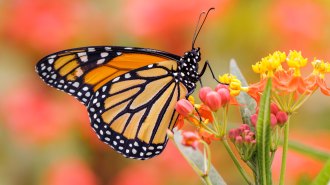 Animals
AnimalsWarm autumns could be a driver in monarch butterflies’ decline
In the lab, higher temperatures during fall migration led monarchs to break their reproductive pause, increasing their risk of death.
By Jude Coleman -
 Humans
HumansStopping menopausal hormones may require more bone monitoring
Women face a small rise in fracture risk within 10 years of stopping therapy, suggesting the need for additional monitoring.
-
 Health & Medicine
Health & MedicineThe sugar substitute sucralose makes immunotherapy less effective
Found in Splenda, sucralose reduces immunotherapy efficacy via its effects on the gut microbiome, but arginine supplements might counter the outcome.
By Payal Dhar -
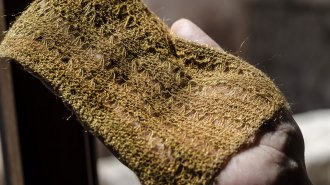 Materials Science
Materials ScienceScientists re-create a legendary golden fabric from clam waste
Sea silk, once spun from endangered clams, may make a comeback — thanks to discarded fibers from a farmed species. The find could sustainably revive a fading art.
By Celina Zhao -
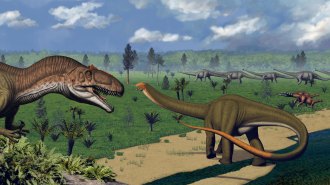 Paleontology
PaleontologyDinosaur teeth reveal some were picky eaters
The enamel in fossilized teeth reveals some dinosaurs preferred to eat particular parts of plants.
By Tom Metcalfe -
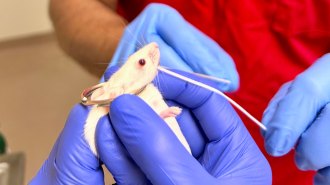 Health & Medicine
Health & MedicineHow flossing a mouse’s teeth could lead to a new kind of vaccine
Flu viruses often enter the body through mucous tissue in the nose. Researchers are developing new ways to protect such areas.
-
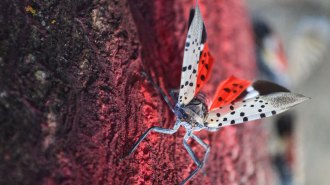 Life
LifeSquashing the spotted lanternfly problem may require enlisting other species
The invasive spotted lanternfly has spread to 17 states and can threaten vineyards. But bats, fungi, dogs and even trees may help control them.
-
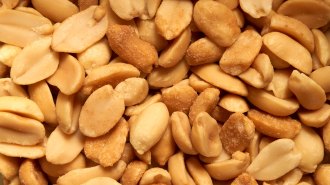 Health & Medicine
Health & MedicineNew clues emerge on how foods spark anaphylaxis
In two studies of mice, a molecule called leukotriene helped trigger food-induced anaphylaxis. A drug approved for asthma — zileuton — diminished it.
-
 Planetary Science
Planetary ScienceA giant planet may orbit our closest sunlike neighbor
Alpha Centauri A, four light-years from Earth, may host a gas giant. If confirmed, no Earthlike planets orbit in the star’s habitable zone.